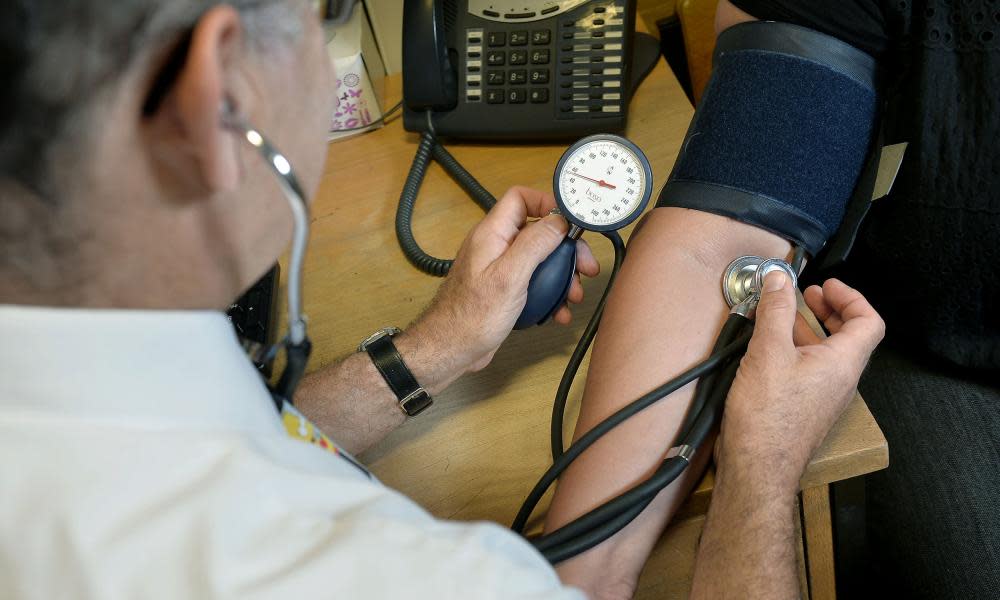As a GP I’m all for collecting information on my patients’ sexuality – but when? | Ann Robinson

There’s been an almighty fuss this weekend about GPs having to ask “intrusive questions” about sexual preferences. The trigger was the next stage of NHS England’s (NHSE) rollout of a programme to record the sexual orientation of all patients and service users over the age of 16. The onus is on all health services and adult social services (run by local authorities) to comply with the Equality Act 2010 by collecting the data. The rationale is that LGB individuals experience inequalities in their health and social care provision, and in order to identify needs, address them, educate the providers and monitor progress, we need the data.
And there’s good evidence that there is an inequality that needs to be addressed. “LGB people are disproportionately affected by a range of health inequalities, including poor mental health, higher risk of self-harm and suicide, increased prevalence of sexually transmitted infections (STI) including HIV, increased use of alcohol, drugs and tobacco with a higher likelihood of dependency, increased social isolation and vulnerability in old age,” says the NHSE/LGBT Foundation.
Collecting data on sexual orientation is already happening, but it’s a bit hotch-potch and this standard is trying to ensure consistency in the way that organisations such as NHSE monitor sexual orientation. We’re already asked about our ethnicity and primary language spoken for similar reasons of monitoring inequality of access to healthcare, as well as for practical reasons, such as booking a translator.
The background to this latest storm in a tabloid teacup is that the aim of the Equality Act is to “outlaw direct and indirect discrimination, harassment and victimisation with regard to the nine protected characteristics … All characteristics will have some impact on all people, whether it is only by ‘not having’ a specific characteristic.” The nine are: age, disability, race (including ethnicity and national identity), sex, gender re-assignment, marriage and civil partnership, pregnancy and maternity, religion or belief, including lack of belief and sexual orientation. So we’d better get used to being asked a lot of questions if we want to live in a society that makes good on these laudable aims.
So I have no problem with this data collection exercise, but I still won’t be asking the questions in my precious 10 minutes of face-to-face GP consultation time. There are already far too many distractions that get in the way of a meaningful interaction with a patient who has usually come to discuss a specific problem, without subjecting them to a barrage of unrelated questions. If you come into my surgery this morning to discuss erectile dysfunction, depression, back pain or your sore throat (to name some common ones), we’ll have a conversation that should include relevant important factors in your life: being pregnant, living with a disability, ongoing gender dysphoria, being lonely, experiencing bullying at work – these are all factors that may play a part in how you are experiencing poor health. Or not. Or you may not want to talk about it right now.
I’d so much rather spend the 10 minutes with you telling me how you feel and why you think that might be. I don’t want to have to fire a load of questions at you. I don’t want to spend the few minutes we have together in a data collection exercise. It’s bad enough that the computer is popping up with reminders to ask you about the flu jab, smear test, blood pressure check and whether you might possibly be moving towards becoming diabetic.
There are already far too many distractions that get in the way of a meaningful interaction with patients
By the time the 10 minutes is up, I’m supposed to have recorded your sexual orientation, defined as: “The stated physical and emotional attraction a person feels towards one sex or another (or both).” I’m supposed to ask: “Which of the following options best describes how you think of yourself? 1: Heterosexual or straight. 2: Gay or lesbian. 3: Bisexual. 4: Other sexual orientation not listed. U: Person asked and does not know or is not sure. Z: Not stated (person asked but declined to provide a response) 9: Not known (not recorded).”
It’s all about time and place. In an ideal world in which we had proper electronic health records, people could be asked to input this data – and the other details needed to monitor progress within the Equality Act – in the privacy of their own homes. But I can’t see that a busy, noisy, rushed GP surgery is the right place. And the time you have with your GP should be used for you to tell your story as you choose, not for the GP to interrogate you for data which will benefit us all in the long term, but may well get in the way of what you’ve come to say.
• Ann Robinson has been a GP for 16 years

 Yahoo News
Yahoo News 
